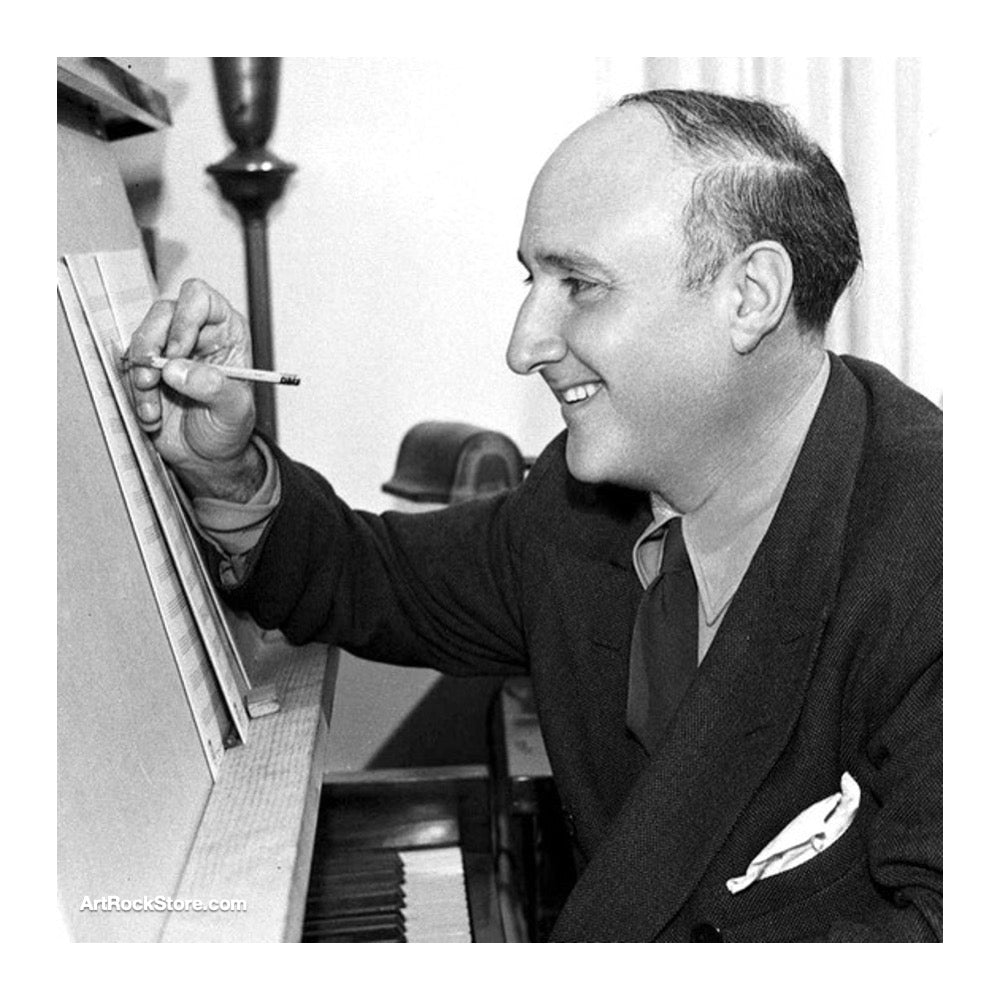
Dimitri Tiomkin | Artist
Dimitri Zinovievich Tiomkin was a Russian-American film composer and conductor born 1894 in Kremenchug, Ukraine. Classically trained in Saint Petersburg before the Bolshevik Revolution, he later moved to Hollywood, where he became best known for his scores for leading directors such as Frank Capra, King Vidor, Fred Zinnemann, and Alfred Hitchcock. Tiomkin's family was of Jewish descent; his father, Zinovy, was a distinguished pathologist, and later a notable Zionist leader. His mother, Maria Tartakovskaya, was a musician who began teaching the young Tiomkin piano at an early age. Her hope was to have her son become a professional pianist. Tiomkin was educated at the Saint Petersburg Conservatory, studying piano with Felix Blumenfeld, teacher of Vladimir Horowitz, and harmony and counterpoint with Alexander Glazunov. He survived the revolution and supported himself by playing piano accompaniment for numerous Russian silent films. Because the revolution limited opportunities for classical musicians in Russia, Tiomkin joined many exiles in moving to Berlin to live with his father. There he studied with pianist Ferruccio Busoni and composed light classical music. He made his performing debut playing Franz Liszt's Piano Concerto No.2 with the Berlin Philharmonic. He moved to Paris to perform and received an offer from New York theatrical producer Morris Gest and emigrated to the United States. Tiomkin performed on the vaudeville circuit, accompanying a ballet troupe run by the Austrian ballerina Albertina Rasch. Tiomkin and Rasch's professional relationship evolved into a personal one, and they married in 1927. While in New York, Tiomkin gave a recital at Carnegie Hall that featured contemporary music by Ravel, Scriabin, and Poulenc. He and his new wife went on tour to Paris in 1928, where he played the European premiere of George Gershwin's Concerto in F at the Paris Opera, with Gershwin in the audience. After the stock market crash in October 1929, Tiomkin and his wife moved to Hollywood, where she was hired to supervise dance numbers in MGM film musicals. Tiomkin received his first break from Columbia director Frank Capra, to write and perform the score for Lost Horizon (1937). The film gained significant recognition for Tiomkin in Hollywood and was released the same year he became a naturalized US citizen. Tiomkin went on to create memorable themes for many of America's greatest films of the 50's including The Alamo, It's a Wonderful Life, Dial M for Murder, Giant, Duel in the Sun, Friendly Persuasion, High Noon, Guns of Navarone, and Lost Horizon. Tiomkin received 22 Academy Award nominations and won four Oscars, three for Best Original Score for High Noon, The High and the Mighty, and The Old Man and the Sea, and one for Best Original Song for "The Ballad of High Noon." A small selection of standout albums includes Giant (1956), The Alamo (1974), Red River (2003), and High Noon (2007). There are many excellent compilations including Dimitri Tiomkin Greatest Film Scores (w/ London Symphony Orch) (2012), and The Movie Music of Dimitri Tiomkin 1937-1962 (2022). During the 1950s Tiomkin was the world's highest-paid film composer, composing close to a rate of a picture each month, achieving his greatest fame during the 1950s and 1960s. He died in London, England, in 1979 at the age of 85, two weeks after fracturing his pelvis in a fall.
Artist Website: wikipedia/Dimitri_Tiomkin
featured Albums: Dimitri Tiomkin
